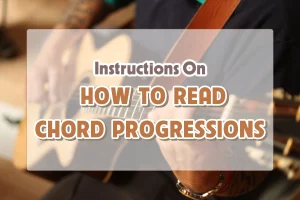
“How long does it take to learn guitar?” is a common question among both budding musicians and who are looking for a new hobby. Unfortunately, the answer is not straightforward. It depends on several factors including your talent, how frequently you can practice, the learning method, and your total dedication. In this article, we will look at the amount of time taken to achieve different levels of proficiency in playing the guitar. Moreover, we will give you some tips to accelerate your guitar learning process.
How Long Will It Take to Learn Guitar for Each Level?

The time to learn guitar is pretty broad, considering your goals and situation. A general breakdown of the timeframes you could expect for different levels will include Beginners, Advanced Beginners, Intermediate, and Advanced Intermediate.
| Level | Time | Skills |
| Beginner | 3-6 months | Chord progressions, strumming, and simple songs |
| Advanced Beginner | 6-12 months | More difficult techniques and higher goals |
| Intermediate | 1-2 years | Master open and barre chords |
| Advanced Intermediate | 2-5 years | Play with confidence and precision |
Beginner
The first stage is the Beginner Phase, which lasts up to 3 to 6 months. The student learns the fundamentals in this stage, such as basic chord progressions, strumming, and simple songs. In this phase, you will usually build calluses, hand strength and coordination, and also set a foundation for further study. You should note that your motivation begins to decline in this stage because the excitement of learning something new has worn off.
Advanced Beginner
Do you know how long does it take to learn guitar until becoming an Advanced Beginner? Based on the estimation, this could last some 6 months to a year. Although the rate of progress may be as not apparent as in the initial stage, students are now dealing with more difficult techniques like fingerpicking, alternate picking, and sweeping. Besides that, you also need to challenge yourself with higher goals like learning more complex songs and solos or developing a personal playing style. Often, this is the first plateau in the learning process on the guitar, and it is here that most people really need to stick it out if they want to benefit from their later growth.
Intermediate
In the Intermediate Phase, which is roughly 1-2 years, concentrated effort is placed on the further refinement of skills and deeper knowledge. In this phase, students are expected to master both open (C, G, D, E, A) and barre (F major, Bb major, Gm, Cm) chords, be able to change chords fluently, and can play some basic scales and melodies. They also develop an awareness of how much more there is to learn and master.
Advanced Intermediate
The Advanced Intermediate phase can extend from 2 to 5 years and is considered an important milestone in the playing of a guitar. Advanced intermediate players have a deep understanding of their instruments, playing with confidence and precision, and sometimes they may have memorized songs to play. While they began exploring improvisation and specific genres, they’ve also recognized the ongoing journey of constant improvement and the pursuit of advanced musical goals.
So, how long does it take to learn guitar? Keep in mind that these are general guidelines, and variation may exist among individual cases. The main things regarding the process of learning to play the guitar are enjoyment, motivation, and cognition of the lifelong process of music excellence.
Factors Contributing to an Effective Guitar Learning Progress

Several factors can influence how quickly or slowly you progress in your guitar learning journey. These include:
- Natural Ability: Although natural ability can certainly help you forge ahead in the race, it is not the only thing that gives you success. Regular practice and hard effort are equally essential.
- Frequency of Practice: The more you practice, the faster you will improve. Make sure you are regularly practicing in order to solidify your learned knowledge and develop muscle memory.
- Method of learning: The method you use for learning guitar can greatly help or hinder progress. You should consider learning styles, budget, and resource availability in making this decision.
- Quality of Instruction: A good teacher can guide, correct mistakes, and motivate you toward your goals.
- Patience and Perseverance: Learning to play guitar is not easy, it takes time and most importantly effort. So be patient and don’t get discouraged if you experience setbacks. You only can play in front of your friends or family after 1-3 years of practicing, let’s enjoy the process.
Tips to Speed Up Your Guitar Learning Process

How long does it take to learn guitar mostly depends on yourself. Here are some tips that can help you learn guitar more quickly:
- Set Realistic Goals: Break down your goals into the smallest and most achievable steps. That way, you will be motivated and be able to measure progress and “optimize your guitar journey”. Instead of learning all chords in one week, for example, you can focus on 3-4 chords every day.
- Practice regularly: Consistency is the keyword. Make guitar practice a routine thing in your life. Even small daily practice develops a lot in some time.
- Find a Supportive Community: Connect with other guitar players to share experiences, learn from each other, and keep yourselves motivated. Joining a local guitar club or online forum gives you a place to call your own and connects you with people who understand your ability and will offer support.
- Music theory helps you be in a better position in terms of playing with confidence and creativity. It gives you a working background regarding scales, chords, and the structure of the music. Moreover, Eguitarmania also has some tips for you to learn guitar theory faster.
- Listen to different kinds of music: Expand your musical horizons by listening to many genres and styles. Exposure to all types of music may inspire you and help you attain your own unique playing style.
- Don’t be afraid to try new things: Experiment with techniques, try out different chord changes, and improvise. Taking yourself away from your comfort zone can promote exciting findings and personal growth.
- Taking breaks: Avoid burnout with short breaks during your practice sessions. A short break can get you focused again and avoid mental fatigue.
- Have fun: Remember that playing a guitar is meant to be fun. Don’t be so obsessed with perfection. Enjoy the feeling of music and celebrate your accomplishments. You can also try the electric guitar for something more energetic and trendy.
- Utilize technology: There are several web resources like JustinGuitar, apps, and software programs that will support your learning process. Consider using online tutorials, chord diagrams, and software metronomes to support your practice.
Final Thoughts
How long does it take to learn guitar? As we’ve gone through, it greatly depends on your natural talent, frequency of practice, method of learning, and general dedication to the process. There is no estimated timeline, but making realistic goals and regularly practicing will help you speed up this process. Keep in mind, that it’s not where you go, but how much fun getting there really is, and how great it feels to reach your milestones.








